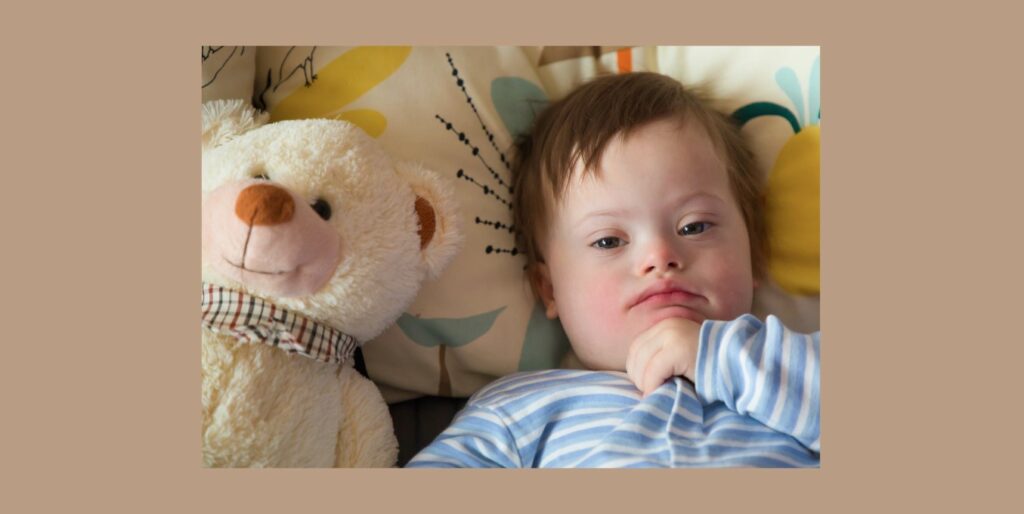
UN Human Rights Committee Criticizes Down Syndrome Abortions…Sort Of
By: Rebecca Oas, originally published November 8, 2024, Crisis Magazine/Opinion
Surprisingly, the UN Human Rights Committee urged Belgium to make sure parents getting prenatal screening also receive information and counseling that does not promote stereotypes about persons with Down syndrome.
AU.N. human rights committee has surprisingly criticized some Western countries for their high rate of Down syndrome abortions.
The criticism came during a session of the committee that oversees compliance with the Convention on the Rights of Persons with Disabilities, one of the U.N.’s core human rights treaties. The session concluded in September, and the report was just issued. It included reviews of Belgium and the Netherlands.
The committee expressed concern with Belgium: that Belgian society views persons with Down syndrome and other impairments as less valuable. The committee said this had led to a high level of abortion for children diagnosed with Down syndrome.
The committee urged Belgium to make sure parents getting prenatal screening also receive information and counseling that does not promote stereotypes about persons with Down syndrome.
The Netherlands received similar recommendations, noting that the committee had received reports of “pressure exerted by health personnel on prospective parents to terminate pregnancies following a diagnosis of Down syndrome or other impairment.”
This issue is not new to the committee’s concerns. The committee warned Sweden of discriminatory attitudes “permeating processes and decisions on prenatal testing and abortion, geared towards the extinction of certain types of intellectual impairments.” Turkey was likewise urged to avoid biased counseling of expectant parents facing a diagnosis of Down syndrome or spina bifida.
These statements were greeted with surprise and satisfaction by pro-life bioethicists who have, for decades, been raising the alarm over the issue of selective abortion on the basis of disability. However, there remains an important problem with the committee’s reasoning.
It is notable that all of the recommendations listed above were directed to Western European countries where abortion laws are generally permissible, though often with gestational limits, and where prenatal testing is common.
It should not be considered that the committee is pro-life. It isn’t. While the committee opposes expectant parents being pressured to selectively abort their disabled children, it raises no objection when parents do so.
In fact, the committee has taken a strong stance in favor of abortion, calling on countries to “decriminalize abortion in all circumstances” and “legalize it in a manner that fully respects the autonomy of women.” While the CRPD Committee has taken a consistent stance against forced or coerced abortions on women with disabilities, it also insists that these same women have access to abortion if they choose it.
Thus, the committee has already taken the position that unborn children, irrespective of disability, are not persons with rights, including the right to life. This is obviously in tension with their criticism of selective abortion in cases of a diagnosis of disability—there cannot be a disability in the absence of a person.
Ultimately, the committee’s unwavering commitment to promoting abortion as a human right forces it into this contradictory position. While laws that make explicit allowance for the elimination of children with disabilities are seen as unseemly, the committee is unwilling to raise a full-throated defense of those children’s right to life.
The practical result of the committee’s reasoning resembles what occurred in Iceland, which has become infamous for its near-eradication of births of children with Down syndrome. Prior to 2019, abortion was legal in Iceland up to 16 weeks, but abortions could be had much later if there was a diagnosis of Down syndrome or other fetal deformities. After the committee criticized Iceland, did Iceland lower the gestational limit for Down syndrome abortions? No. Instead, it raised the gestational allowance for all abortions from 16 to 22 weeks. It was actually reported at the time that Iceland had “cured” Down syndrome; but all they had actually done was ensure that none of those children were ever born.
Iceland’s next appearance before the committee happens next year. It remains to be seen whether the CRPD Committee will consider this to be an improvement.
The CRPD Committee’s criticism of selective abortion on the basis of disability is certainly a good thing, as is its condemnation of forced abortion. However, its insistence on promoting abortion as a right severely undermines the fulfillment of its mandate to protect the rights of the most vulnerable persons with disabilities.
It should be noted that the opinions of these committees have no force in law. Moreover, these types of committees often go far beyond their mandates. However, their opinions are used by lawyers, judges, and parliamentarians as legal levers to create new human rights norms.
Rebecca Oas is the Director of Research for the Center for Family and Human Rights (C-Fam) in Washington, D.C.
